10 Best Herbal Capsules For Post Nasal Drip

Herbal capsules for post nasal drip are natural supplements that aim to alleviate symptoms such as congestion, mucus production, and throat irritation.
These capsules often contain ingredients like eucalyptus, ginger, echinacea, and licorice root, which are known for their anti-inflammatory and mucolytic properties. They are typically used as an alternative or complementary therapy to conventional treatments like antihistamines or decongestants. Many people prefer herbal capsules due to their perceived safety and fewer side effects compared to pharmaceutical options.
However, it is important to consult with a healthcare provider before starting any herbal regimen, especially for individuals with chronic conditions or those taking other medications.
Table of Contents
- 1. Ginger (Zingiber officinale)
- 2. Stinging nettle (Urtica dioica)
- 3. Thyme (Thymus vulgaris)
- 4. Eucalyptus (Eucalyptus globulus)
- 5. Salvia (Salvia officinalis)
- 6. Ceylon cinnamon (Cinnamomum verum)
- 7. Licorice (Glycyrrhiza glabra)
- 8. Rosemary (Rosmarinus officinalis)
- 9. Catnip (Nepeta cataria)
- 10. Parsley (Petroselinum crispum)
1. Ginger (Zingiber officinale)

Zingiber officinale, commonly known as ginger, has been traditionally used for its anti-inflammatory and antimicrobial properties, making it a popular herbal remedy for post nasal drip.
When formulated into capsules, zingiber officinale may help reduce mucus production and soothe irritated nasal passages, offering natural relief from congestion and throat irritation. Studies suggest that ginger can help alleviate symptoms by reducing inflammation in the respiratory tract and improving drainage. It is generally considered safe for most adults when taken in recommended doses, though individuals with certain health conditions should consult a healthcare provider before use.
Overall, ginger capsules may serve as a complementary therapy for managing post nasal drip symptoms alongside conventional treatments.
2. Stinging nettle (Urtica dioica)

Urtica dioica, commonly known as stinging nettle, is a herbal remedy that has been used for centuries to support respiratory health.
Urtica dioica herbal capsules are often used to alleviate symptoms of post nasal drip due to their anti-inflammatory and mucolytic properties. These capsules may help reduce excess mucus production and soothe irritated nasal passages, providing relief from congestion and discomfort. They are typically made from standardized extracts of the plant, ensuring consistent potency and efficacy.
While generally considered safe, it is advisable to consult a healthcare professional before using urtica dioica, especially for individuals with allergies or on other medications.
3. Thyme (Thymus vulgaris)
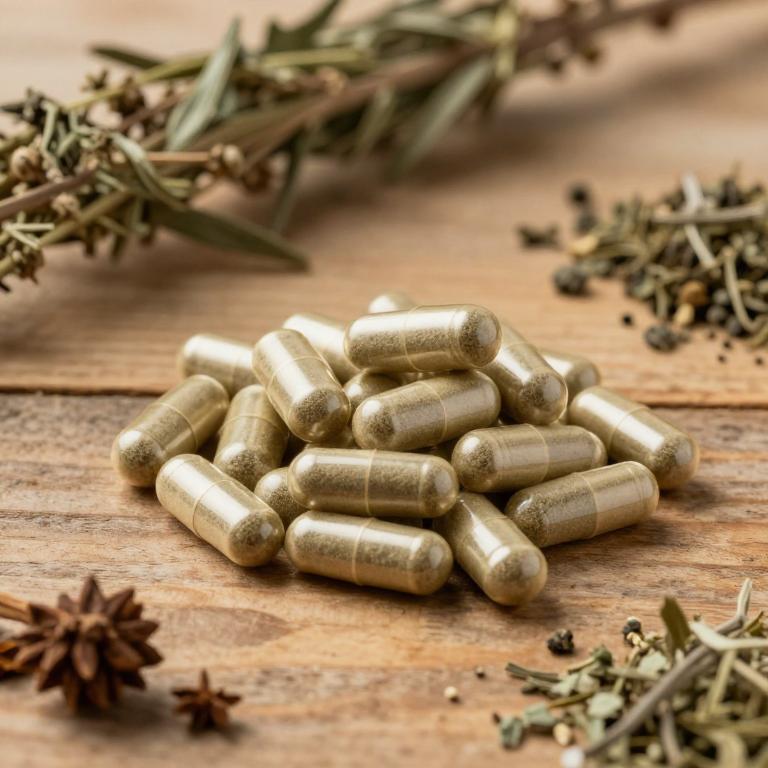
Thymus vulgaris, also known as thyme, is a commonly used herb in herbal medicine for its potential respiratory benefits.
Thymus vulgaris herbal capsules are often recommended for individuals suffering from post nasal drip due to their antimicrobial and anti-inflammatory properties. These capsules may help reduce mucus production and soothe irritation in the nasal passages. The essential oils in thyme, such as thymol, are believed to support immune function and ease congestion.
However, it is important to consult with a healthcare provider before using these capsules, especially if you have underlying health conditions or are taking other medications.
4. Eucalyptus (Eucalyptus globulus)
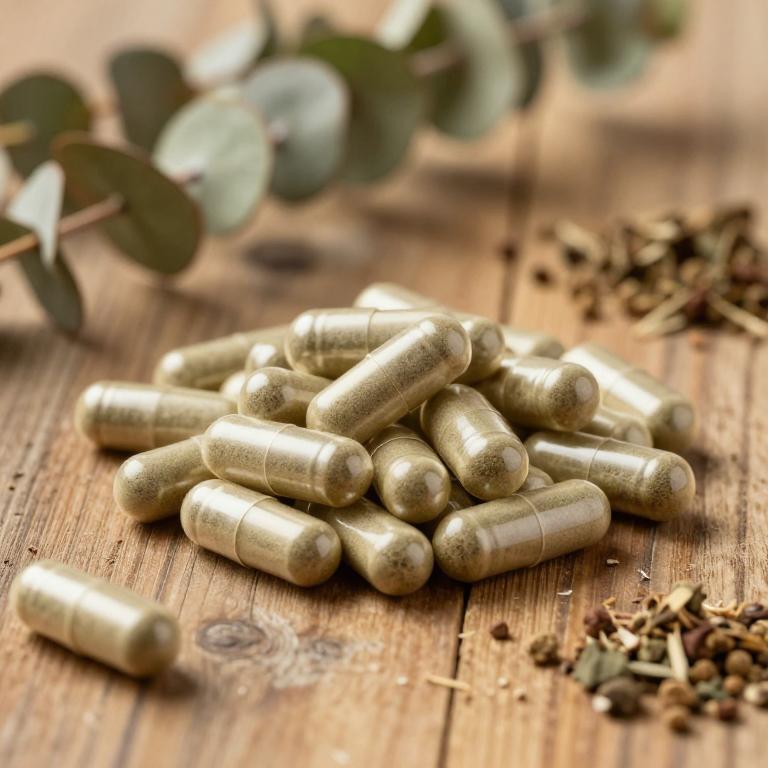
Eucalyptus globulus, commonly known as eucalyptus, is a herbal remedy that has been traditionally used for its soothing and decongestant properties.
When formulated into herbal capsules, eucalyptus globulus can help alleviate symptoms of post-nasal drip by reducing mucus production and thinning respiratory secretions. The active compounds in eucalyptus, such as cineole and terpenes, possess anti-inflammatory and antimicrobial effects that support respiratory health. These capsules are often used as a natural alternative to conventional medications, offering a mild and gentle approach to managing persistent nasal congestion.
However, it is advisable to consult a healthcare professional before use, especially for individuals with existing medical conditions or those taking other medications.
5. Salvia (Salvia officinalis)
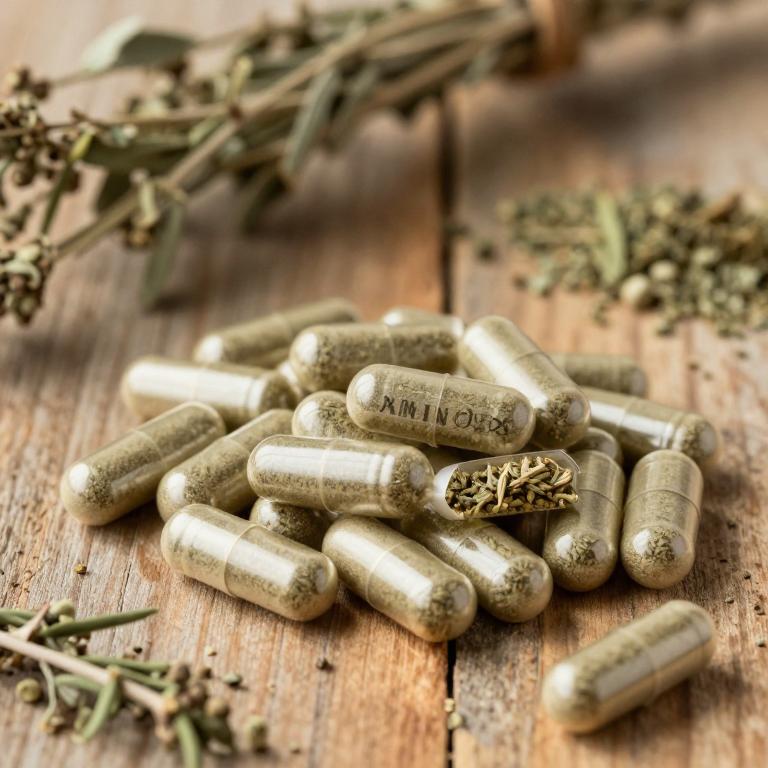
Salvia officinalis, commonly known as sage, has been traditionally used for its medicinal properties, and its herbal capsules may offer potential benefits for individuals suffering from post nasal drip.
The plant contains compounds such as rosmarinic acid and flavonoids, which have anti-inflammatory and antimicrobial properties that may help reduce mucus production and soothe irritated nasal passages. Some studies suggest that sage may help alleviate symptoms of upper respiratory tract infections, making it a possible natural remedy for post nasal drip. However, it is important to consult with a healthcare professional before using sage capsules, especially for those with existing health conditions or taking other medications.
While anecdotal evidence supports its use, more clinical research is needed to fully establish its efficacy and safety for this specific condition.
6. Ceylon cinnamon (Cinnamomum verum)
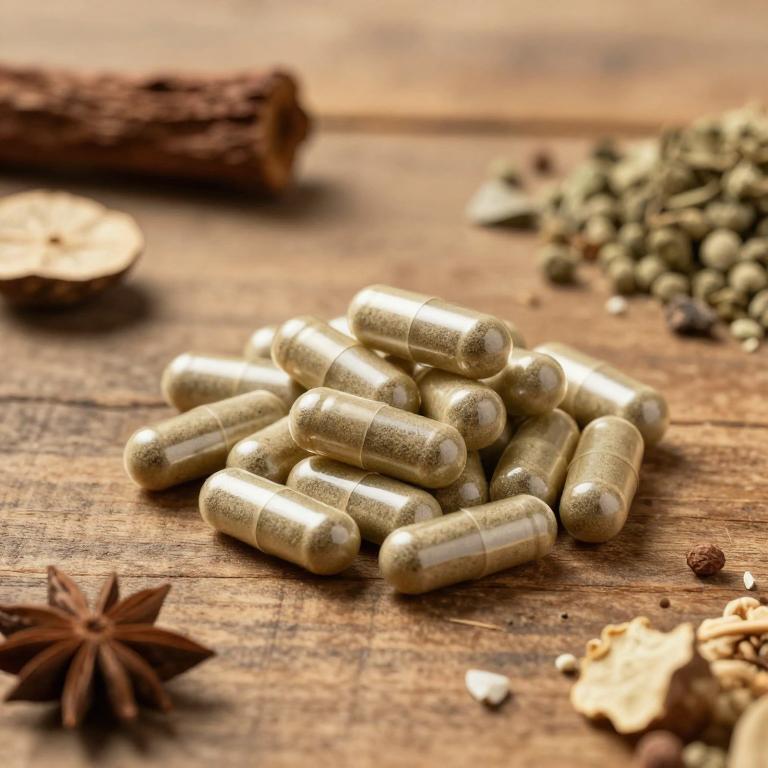
Cinnamomum verum, commonly known as true cinnamon, has been traditionally used for its anti-inflammatory and antimicrobial properties, making it a potential natural remedy for post nasal drip.
When encapsulated as herbal capsules, it may help reduce inflammation in the nasal passages and soothe irritation caused by excess mucus production. The essential oils in cinnamon, such as cinnamaldehyde, are believed to have decongestant effects that can ease breathing and alleviate symptoms of chronic nasal congestion. However, it is important to consult with a healthcare provider before using cinnamon capsules, especially for individuals with allergies or those taking other medications.
While preliminary studies show promise, more research is needed to fully understand its efficacy and safety for treating post nasal drip.
7. Licorice (Glycyrrhiza glabra)

Glycyrrhiza glabra, commonly known as licorice root, is a traditional herbal remedy that has been used for centuries to support respiratory health.
When formulated into herbal capsules, it may help alleviate symptoms of post-nasal drip by reducing inflammation and soothing the mucous membranes in the throat. The active compound, glycyrrhizin, possesses anti-inflammatory and antiviral properties that can help thin mucus and ease its drainage. However, prolonged use of licorice root capsules may lead to side effects such as hypertension and electrolyte imbalances due to its mineralocorticoid-like effects.
As with any supplement, it is advisable to consult a healthcare professional before using glycyrrhiza glabra capsules for post-nasal drip.
8. Rosemary (Rosmarinus officinalis)
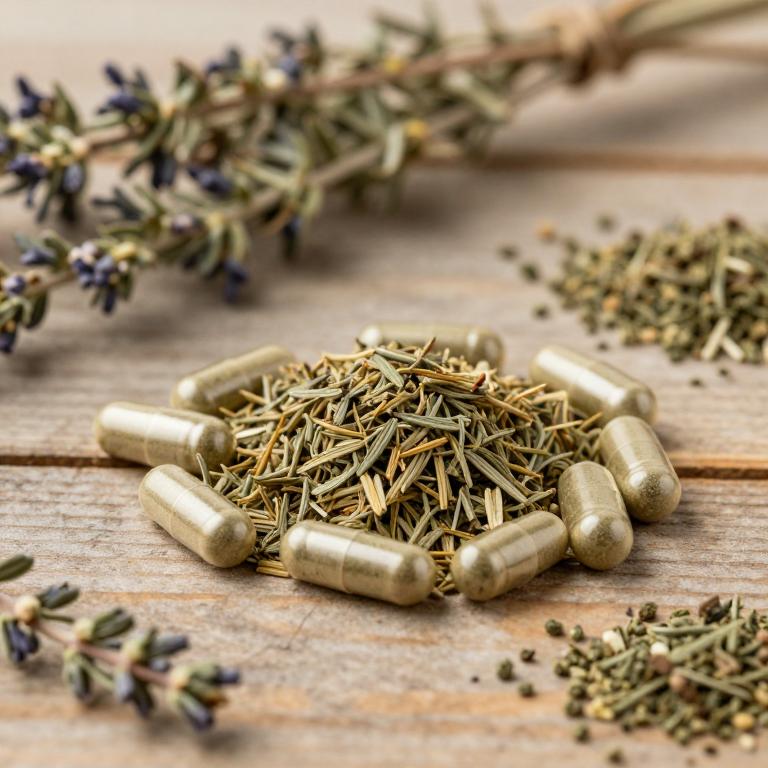
Rosmarinus officinalis, commonly known as rosemary, is a herb that has been traditionally used for its aromatic and medicinal properties.
Rosemary herbal capsules are often recommended for individuals suffering from post nasal drip due to their potential anti-inflammatory and decongestant effects. The active compounds in rosemary, such as rosmarinic acid and carnosic acid, may help reduce mucus production and soothe irritated nasal passages. These capsules are typically taken as a dietary supplement and are considered safe for most adults when used as directed.
However, it is advisable to consult a healthcare professional before starting any new herbal regimen, especially for those with existing health conditions or taking other medications.
9. Catnip (Nepeta cataria)
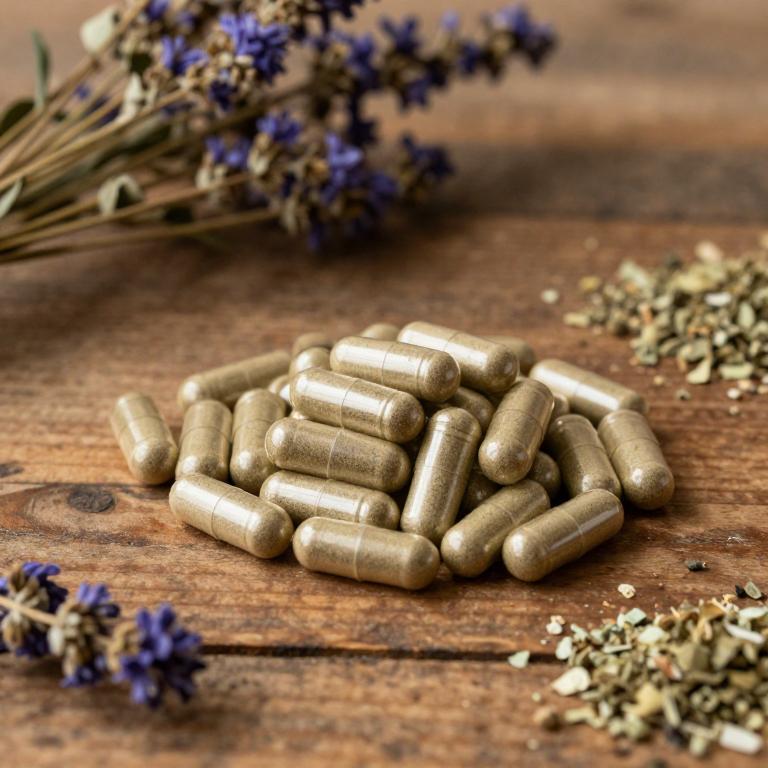
Nepeta cataria, commonly known as catnip, has been traditionally used for its potential respiratory benefits, including alleviating symptoms of post nasal drip.
When formulated into herbal capsules, it may help reduce mucus production and soothe irritated nasal passages due to its mild expectorant properties. Some studies suggest that nepeta cataria may have anti-inflammatory and antimicrobial effects that support respiratory health. However, it is important to consult a healthcare provider before using these capsules, especially for individuals with allergies or chronic respiratory conditions.
While generally considered safe in moderate doses, the effectiveness of nepeta cataria for post nasal drip may vary among individuals.
10. Parsley (Petroselinum crispum)
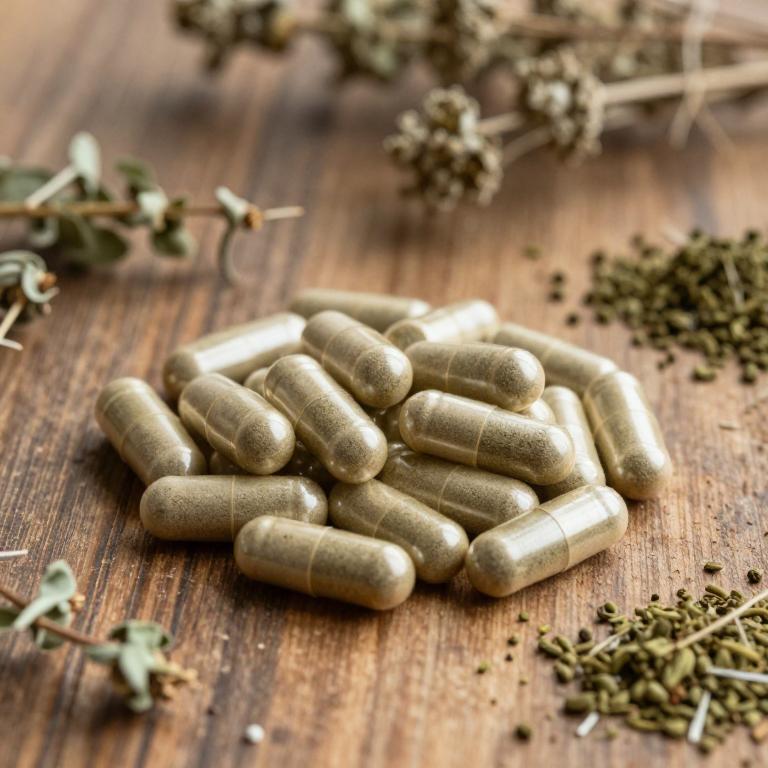
Petroselinum crispum, commonly known as parsley, has been traditionally used for its medicinal properties, including its potential benefits for respiratory health.
Herbal capsules containing Petroselinum crispum are often marketed for their ability to alleviate symptoms of post nasal drip by reducing mucus production and soothing irritated airways. The herb is rich in antioxidants and anti-inflammatory compounds that may support the body's natural defenses against respiratory irritation. These capsules are typically made from standardized extracts to ensure consistent potency and efficacy.
While they may offer natural relief, it is important to consult a healthcare professional before use, especially for individuals with pre-existing conditions or those taking other medications.